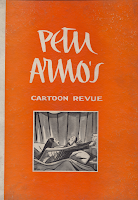 I first heard of this book maybe ten years ago when I was reading Clifton Fadiman's Lifetime Reading Plan, and I've been meaning to read it since then. It did not let me down in the least. This is a book that will stay with me a long time. It was so simple, so clear, so meaningful, and so powerful. I never felt like I understood African village life before, and now, well, I do feel like I understand it, on some level. I can understand how it would feel natural, how it would feel comfortable. He paints the picture so clearly, I could taste the yams. And then, at the same time, it is about modern man's separation from that natural life. How everything that we do, from our machines, to our religion, to our fears, to our food, separate us from natural life. I'm in the middle of Pine and Gilmore's Authenticity right now, and it is connecting so many things for me. I keep coming back to the idea that Alexander's fifteen principles are the key to living a life connected to nature... I have to explore this further.
I first heard of this book maybe ten years ago when I was reading Clifton Fadiman's Lifetime Reading Plan, and I've been meaning to read it since then. It did not let me down in the least. This is a book that will stay with me a long time. It was so simple, so clear, so meaningful, and so powerful. I never felt like I understood African village life before, and now, well, I do feel like I understand it, on some level. I can understand how it would feel natural, how it would feel comfortable. He paints the picture so clearly, I could taste the yams. And then, at the same time, it is about modern man's separation from that natural life. How everything that we do, from our machines, to our religion, to our fears, to our food, separate us from natural life. I'm in the middle of Pine and Gilmore's Authenticity right now, and it is connecting so many things for me. I keep coming back to the idea that Alexander's fifteen principles are the key to living a life connected to nature... I have to explore this further.Anyway, I've never been a big fan of required reading for high school students -- most of the choices are not helpful to students at all. But this -- this is something else -- it is something everyone can understand, everyone can relate to, and it addresses issues that are as unsolved today as when the book was written. This is truly one of the great novels of the twentieth century.

















































